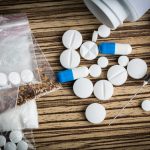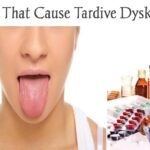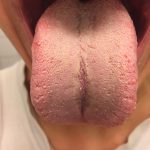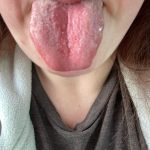List of Illegal Drugs That Cause Mouth Movements
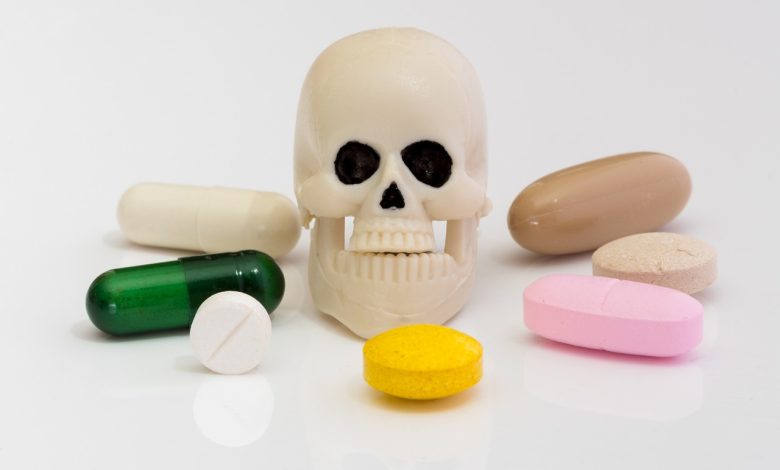
Mouth movement symptoms can refer to a range of abnormal or atypical movements or behaviors involving the mouth. These symptoms can be associated with various underlying conditions or disorders, examples include:
1. Facial Tics: Facial tics are sudden, involuntary, repetitive movements or spasms that can affect the muscles around the mouth. These tics may include movements like lip smacking, tongue thrusting, or grimacing.
2. Bruxism: Bruxism is a condition characterized by the grinding or clenching of teeth, often accompanied by excessive jaw movements. These movements can result in jaw pain, headaches, and worn-down teeth.
3. Orofacial Dystonia: Orofacial dystonia is a movement disorder that causes involuntary muscle contractions in the face, including the mouth. It can lead to abnormal mouth movements, such as jaw opening or closing, tongue protrusion, or lip puckering.
4. Facial Dyskinesia: Facial dyskinesia refers to abnormal, involuntary movements of the face. These movements can involve the mouth and may include repetitive lip smacking, tongue thrusting, or jaw movements. Facial dyskinesia can be a side effect of certain medications or a symptom of neurological conditions like tardive dyskinesia.
5. Oral-Facial Apraxia: Oral-facial apraxia is a neurological disorder that affects the ability to voluntarily control the muscles of the mouth and face. It can result in difficulties with coordinated mouth movements for speech, swallowing, and other oral activities.
6. Oral Dyskinesia: Oral dyskinesia is characterized by involuntary movements of the mouth, including lips, tongue, and jaw. These movements can manifest as lip smacking, chewing motions, or repetitive tongue protrusion. Oral dyskinesia can be associated with certain medications or neurologic conditions like Parkinson’s disease.
It is important to note that these symptoms can vary in severity and may be caused by different underlying factors. In this article, we shall be looking at the list of illicit or illegal drugs that have been linked to abnormal mouth movements or related symptoms.
What are illegal drugs?
Illegal drugs, also known as illicit drugs or controlled substances, refer to substances that are prohibited by law. These substances are considered dangerous and have the potential for abuse, dependence, and harmful effects on individuals and society. The use, possession, production, and distribution of illegal drugs are criminal offenses in most countries.
The classification of drugs as illegal varies across different jurisdictions. The background and reasons for the prohibition of illegal drugs are multifaceted. Governments and societies generally aim to address the potential risks and harm associated with drug use. These risks include the negative health effects on individuals, the impact on public safety and crime rates, and the economic burden on healthcare and social systems. The drug trade is often linked to organized crime, violence, and corruption, further exacerbating these concerns.
List of Illegal Drugs That Cause Mouth Movements
There are certain illegal drugs that have been known to cause abnormal mouth movements as a side effect. These movements are often referred to as drug-induced orofacial dyskinesia. Here are some examples of illegal drugs that have been associated with such symptoms:
1. Methamphetamine: Methamphetamine, commonly known as meth or crystal meth, is a highly addictive stimulant drug. Prolonged use of methamphetamine can lead to a condition called meth mouth, characterized by severe dental problems. Methamphetamine use has also been linked to bruxism (teeth grinding), jaw clenching, and repetitive orofacial movements.
2. Cocaine: Cocaine is a powerful stimulant drug that can cause various physical and psychological effects. Cocaine use has been associated with bruxism, jaw clenching, and involuntary or repetitive mouth movements such as lip biting or grinding of the teeth.
3. MDMA (Ecstasy): MDMA, commonly known as ecstasy, is a psychoactive drug that produces euphoric effects. It can cause jaw clenching, teeth grinding, and repetitive chewing or lip movements. These movements are sometimes referred to as “gurning” or “gurning face” in the context of MDMA use.
4. Synthetic Cathinones (“Bath Salts”): Synthetic cathinones, often sold as “bath salts,” are synthetic drugs that mimic the effects of amphetamines or other stimulants. The use of synthetic cathinone has been associated with bruxism, jaw clenching, and abnormal mouth movements.
5. Heroin: This is an opioid drug derived from morphine. It produces intense feelings of euphoria and relaxation by binding to opioid receptors in the brain. While mouth movements may not be a direct effect of heroin use, individuals who inject heroin may exhibit oral-related symptoms due to the injection method. Repeated injections can cause damage to veins and surrounding tissues, leading to abscesses or infections. These oral health issues can indirectly affect mouth movements and contribute to difficulties with oral functions.
6. LSD (Lysergic acid diethylamide): LSD is a powerful hallucinogenic drug that alters perception, mood, and cognition. It affects serotonin receptors in the brain, leading to profound sensory distortions and hallucinations. LSD use itself does not typically cause specific mouth movements. However, the drug’s intense hallucinatory effects can lead to changes in perception and altered sensory experiences, which may indirectly affect a person’s perception of their own mouth movements or bodily sensations.
It’s important to note that while certain illegal drugs may be associated with mouth movements, the specific effects can vary among individuals. Additionally, illegal drugs can have numerous other harmful effects on physical and mental health, including addiction, cardiovascular problems, respiratory issues, psychological disturbances, and social and legal consequences.
How is Illegal Drugs Mouth Movements Treated?
The treatment of mouth movements associated with illegal drug use depends on several factors, including the specific drug involved, the severity of the symptoms, and individual circumstances. Here are some approaches commonly used in the treatment of drug-induced mouth movements:
1. Substance Abuse Treatment:
• The first step in addressing mouth movements associated with illegal drug use is to address the underlying substance abuse problem. This may involve various treatment modalities, such as detoxification, counseling, behavioral therapies, and support groups.
• Substance abuse treatment aims to help individuals overcome drug dependence, develop healthier coping mechanisms, and maintain long-term recovery. By addressing the root cause of the mouth movements, the symptoms may improve or resolve over time.
2. Medications:
• In some cases, medications may be used to manage the symptoms of drug-induced mouth movements. These medications may include muscle relaxants, anticonvulsants, or medications that target specific neurotransmitters in the brain.
• The choice of medication depends on the specific symptoms and their severity. It is important for a healthcare professional to assess the individual’s overall health, medical history, and potential interactions with other medications before prescribing any medication.
3. Oral Health Care:
• For individuals experiencing dental problems or oral health issues associated with drug use, oral health care is crucial. This may involve dental treatments, such as fillings, extractions, or restorative procedures, to address the damage caused by drug-induced mouth movements.
• Regular dental check-ups, oral hygiene practices, and education about maintaining good oral health can help prevent further damage and promote oral well-being.
4. Supportive Therapies:
• Complementary therapies such as physical therapy, speech therapy, and occupational therapy may be beneficial in managing mouth movements and improving overall motor control and coordination.
• Supportive therapies can help individuals regain control over their mouth movements, enhance muscle strength and coordination, and develop strategies to manage any persisting symptoms.
It’s important to consult with healthcare professionals, including physicians, addiction specialists, and oral health professionals, to determine the most appropriate treatment approach based on individual needs. The treatment process may involve a multidisciplinary team to address the various aspects of drug-induced mouth movements and related issues.

